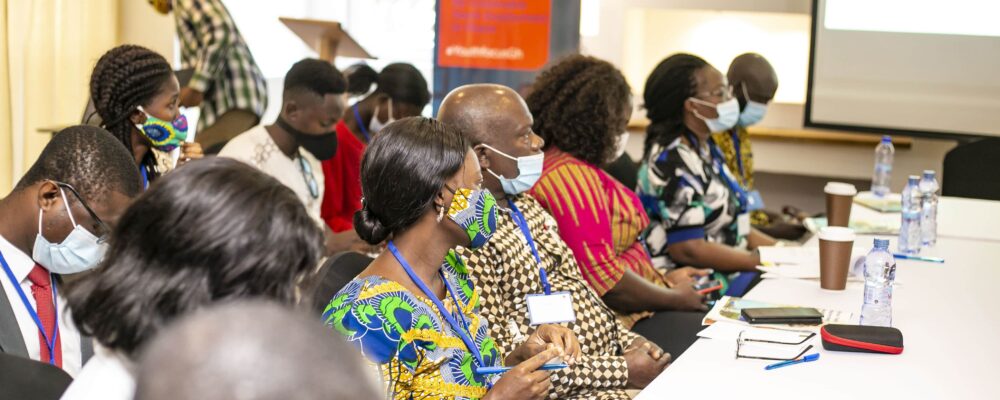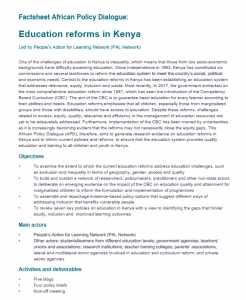
The APD on ‘Education reforms in Kenya’, led by the People’s Action for Learning Network (PAL Network), assesses the extent to which the current education reforms address inclusion and equity in education. Below is a summary of the work emerging from this APD.
To ensure that key stakeholders are involved in APD activities, this APD has identified stakeholders in the education sector in Kenya. These actors are those with the capacity and power to influence education reforms from government agencies, teachers associations, research institutions, teacher training colleges, parents’ associations, donor agencies, the media and parliament. [Read the stakeholder report here]
This APD also published a report on education policy scan in response to the basic education curriculum framework principle. The report shows that although the Ministry of Education has formulated several policies to guide the competency-based curriculum (CBC) implementation of the, implementation of these policies and their positive effects on learning remain a challenge. The key policy gaps include lack of comprehensive data, lack of indicators and continuous reporting by the Ministry of Education, lack of baseline data prior to the development of policies and lack of clear methodologies and criteria to determine which policy contributes to which change in the sector. These gaps make it difficult to determine the effectiveness of education policies. [Read the policy scan here]
To assess outcomes of the current education reforms, a framework, this APD has developed quality indicators of the competency based curriculum. In the coming days, this APD will propose strategies to address these gaps in order to enhance inclusion and equity in education in the country.
Finally, this APD produced a blog post titled ‘A girl. A picture. A story.’, which documents (with images) the daily experiences of a young Kenyan girl during school closures. The story emphasises how the absense of oppotunities to continue and complete education is a key factor preventing intergenerational mobility, individual growth and local development. [Read the policy scan here]
